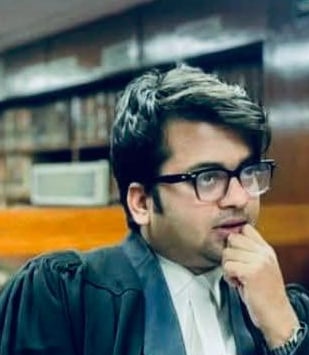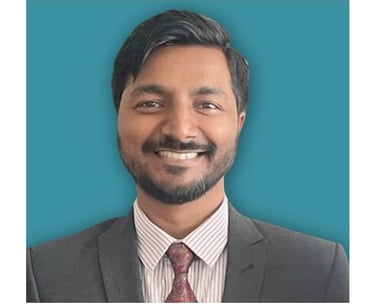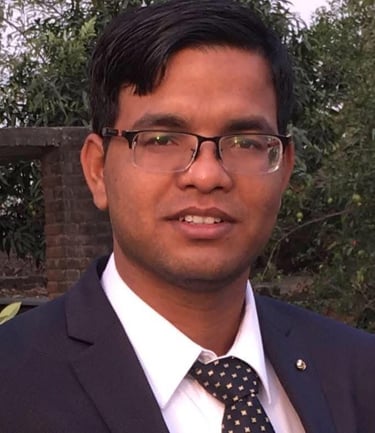Nalanda is an independent think tank focused on examining the processes through which judges are appointed and rise to the Supreme Court, along with their contributions to the nation through intellectual endeavors, logical analysis, and adherence to constitutional principles. Judges occupy a crucial role that goes beyond simply resolving disputes; they also create knowledge. Each decision represents a substantial undertaking of intellectual effort, shaped by academic research, philosophical contemplation, and constitutional innovation. The Supreme Court of India operates not just as a legal authority; it also acts as a platform for in-depth academic exploration, addressing issues of rights, democracy, power, and justice with scholarly precision. Nalanda documents this remarkable intellectual role. Our research investigates the judge selection processes, their cognitive strategies, the traditions that influence their viewpoints, and the ways in which their rulings impact India’s constitutional development and affect global legal thought.
Fundamental Ideas About Nalanda
Nalanda was established in response to the urgent requirement for an autonomous think-tank in India focused solely on analyzing the judges of the Supreme Court of India and the Collegium that appoints them. In a constitutional democracy, it is crucial to grasp the philosophy, background, and reasoning of judges to interpret rights, democracy, authority, and justice accurately. A comprehensive understanding of the future of Indian constitutionalism calls for insights into the bodies and individuals that influence it.
The Journey of Nalanda received significant influence from Professor Werner F. Menski, whose work, Comparative Law in a Global Context, introduced me to the concept of legal pluralism and "living law." He emphasized that Indian law cannot be fully comprehended through formal doctrines alone; rather, judicial reasoning in India is influenced by culture, community, customs, caste, and lived experiences. This perspective underscores the inherently interdisciplinary nature of studying judges.
The SOAS (School of Oriental and African Studies) tradition expanded on this viewpoint, illustrating that postcolonial legal systems—particularly in the Global South—must be examined through the lens of historical inequality, structural power, and civilizational context. Nalanda is firmly anchored in this intellectual legacy.
A fundamental conceptual foundation for Nalanda is supplied by Dr. G. Mohan Gopal, whose book, The Sins of Kings and Judges, and his critique of India’s “judicial oligarchy,” shed light on the structural concentration of judicial power within the Supreme Court. His research affirmed the vital democratic need to scrutinize judicial appointments with independence, seriousness, and constitutional integrity.
Joseph Raz, in his book The Authority of Law, provided essential philosophical insights, establishing the groundwork of exclusive legal positivism and offering a rigorous exploration of law’s authority as a system of sources rather than mere moral judgments. Raz’s theory of institutional authority clarified how judicial power is constructed and functions and highlighted the necessity of examining the sources, processes, and frameworks of the judiciary to maintain constitutional accountability.
My academic journey has been enriched by engaging discussions with Dr. Arvind Kumar and Dr. Shailesh Kumar, whose insights into public law and the institutional nature of the Supreme Court deepened my comprehension of judicial power. Hindu College and Delhi University fostered an intellectual environment that nurtured my constitutional curiosity and critical analysis of institutions. Interactions with Dr. Ratan Lal and Assistant Professor Rohan Kamble, Dr. Pankaj Pushkar broadened my understanding of Ambedkarite thought, caste, equality, and constitutional ethics. They reminded me that the judiciary must always be analyzed within the framework of India’s social realities and structural inequalities. I also gained invaluable insights from Assistant Professor Sheetal Bhopal, whose sociological perspectives connected academic theory with real-world constitutional experiences.
In addition to these academic influences, my years of practice in the Supreme Court of India and the Delhi High Court, along with my upbringing in an Indian village, highlighted the significant gap between the law as recorded and the law as implemented. Courtrooms unveiled the limitations of legal formalism, while village life demonstrated the challenges of institutional outreach. My colleagues, associates, and interns have profoundly shaped my perspective through their questions, critiques, and firsthand experiences, providing practical insights into the application of law in daily life.
Desiring to establish an independent think tank, it also reflects Professor Upender Baxi's response, Upendra Baxi, A Known But an Indifferent Judge: Situating Ronald Dworkin in Contemporary Indian Jurisprudence, (Baxi began his essay by lamenting the low level of engagement of American legal scholarship, of which Dworkin has been a leading figure, with the comparably significant Indian experience. Not much has changed since then.
Ultimately, Nalanda builds upon the empirical groundwork established by George H. Gadbois, Jr., whose seminal work Judges of the Supreme Court of India, 1950–89 illustrated that judges can—and should—be studied systematically. Gadbois documented the histories of the Court’s early judges; Nalanda aims to extend this exploration into both current and future contexts.
The mission of Nalanda is clear and steadfast: to understand the judges of the Supreme Court of India and the Collegium system with meticulous academic rigor, constitutional depth, and complete independence.
Raja Choudhary— Founder, Nalanda
The Researcher at the Gate
Raja Choudhary is the founding editor who conceptualized The Nalanda as a platform where scholarship intersects with the Supreme Court. As an Advocate practicing before the Supreme Court of India, he has been involved in over 300 cases spanning constitutional, criminal, and civil law. Recognized for his ability to connect academic theory with courtroom reality, his contributions demonstrate a profound commitment to jurisprudence and institutional accountability. Having studied at the University of London and the University of Delhi, his articles in The Indian Express, The Print, and LiveLaw delve into themes of constitutional morality, social justice, and the intellectual underpinnings of judicial authority. He established The Nalanda as India’s premier archive aimed at comprehending the roles of the judges of the Supreme Court and the Collegium that influences the Court.
LinkedIn: -https://in.linkedin.com/in/raja-choudhary-b07953274.


Dr Shailesh Kumar serves as the advisory editor of The Nalanda, an interdisciplinary socio-legal researcher, criminologist, and ethnographer, working as a Lecturer in Law at the Department of Law & Criminology at Royal Holloway, University of London, where he was nominated for the Education Excellence Award 2025. He has also taught at the University of East London, SOAS, and Birkbeck, University of London. He received his PhD from Birkbeck as a Commonwealth Scholar and has delivered several modules in law and criminology in the UK, focusing chiefly on Criminal Law, Public Law, Race, Ethnicity, Crime & Justice, as well as Legal Systems & Methods.
His research interests include Criminal Law, Public Law, Legal Anthropology, Law & Humanities, and Socio-Legal Studies, specifically targeting issues such as Child Sexual Abuse, Youth Justice, Court Art & Architecture, Penal and Prison Abolition, Casteism & Racism within the Criminal Justice System, and Gender, Sexuality, and Crime. His publications have appeared in international journals and handbooks. He has served as a reviewer for prominent international journals and publishers such as Oxford University Press, Routledge, and Bristol University Press, and has produced opinion pieces for leading Indian media outlets including the Hindu, Indian Express, The Wire, The Print, and LiveLaw. To promote awareness and strive towards a world free from child sexual abuse, caste discrimination, and human rights violations, he has collaborated with organizations such as CSA Centre, DSN UK, FABO UK, and PUCL India, and has founded INTSAC(Opens in new window) (International Network to Tackle Sexual Abuse against Children).
Linkden:https://www.linkedin.com/in/shailesh-kumar-phd-47120645.


Dr. Arvind Kumar serves as the advisory editor of The Nalanda, FHEA, and is a Visiting Lecturer at the University of Hertfordshire, as well as an Associate Fellow at the Institute of Commonwealth Studies, University of London. He holds a PhD from Royal Holloway, University of London, and is recognized as an international scholar with a specialization in Politics, Global Governance, Constitutional Democracy, and Legal and Political Theory. As a Fellow of the Higher Education Academy, he instructs courses in Politics, International Relations, and Political Sociology, emphasizing topics such as governance, legislative and judicial representation, social inequalities, and public policy. Dr. Kumar adds to Nalanda with his robust academic background, experience in higher education governance, and commitment to fostering inclusive, research-oriented public dialogue, aiding its goal of connecting academic exploration with justice, law, and society.
Linkden:-https://www.linkedin.com/in/dr-arvind-kumar-fhea-29b691.


Anushika Mishra is a Research Assistant at The Nalanda and an Advocate at the Supreme Court of India. She holds a B.A. LL.B. (Hons.) from Dr. B. R. Ambedkar National Law University and engages in legal discourse through articles and initiatives for youth involvement in law. Previously, she worked on "Project Rajaswala" under the Adhyayan Foundation focused on menstrual hygiene and workplace equality. Anushika has also excelled in mooting, winning honors and holding leadership roles in her university's Moot Court Committee.
LinkedIn:https://www.linkedin.com/in/anushika-mishra-25541212.

